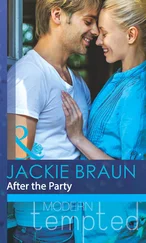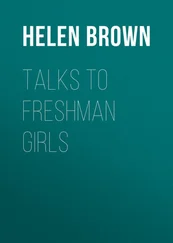The young monks listened attentively while Lydia gave them a Neuroscience lesson using PowerPoint on her laptop. As she explained how brain cells cannot be replaced after being damaged, but sometimes reroute themselves, it was hard to judge her audience’s response. While some boys were more engaged than others, they were all immensely polite and showed no obvious signs of boredom.
Farewells and gifts were exchanged and photos taken. I returned to my room to collect my suitcase but it had disappeared – miraculously transported down the slope into the boot of a waiting car.
As we followed Lydia’s teacher down the slope, he warned us the steps were slippery after last night’s rain. Though the lure of a flushing toilet and jet-stream shower was strong, I was sad to be going. My stay at the monastery had been short, but I was leaving it a more open-hearted, less fearful woman than the one who had arrived.
Settling into the back seat of the car, I told the monk we’d be more than happy to go straight to the hotel.
‘But you really must see the tea plantations,’ he insisted. ‘It’ll only take an hour or two and it’s very beautiful. Also, it’s nice and cool up there in the high country.’
Considering how close to the heavens the monastery was already, it was hard to imagine there was much more of an ‘up there’ above us.
The monk made it clear there was no room for argument. Maybe he wanted to use the time to discuss serious matters concerning his ‘disciple’ Lydia.
The Question
Hungry ghosts and radiant happiness
As we snaked through towns with the windows down, I started to feel nauseous from the combination of heat and petrol fumes. The monk was uncomfortable too. He leant out the window and spat theatrically onto the road. The driver assured us we’d be in cooler, more pleasant country soon.
Outside a shack on the side of the road, a boy sifted through his mother’s waist-long hair. This touching scene reminded me of the ongoing battle we’d had with nits during primary school years.
The car rattled up into hills steep and green enough to have been digitally enhanced. Rounding a bend, we encountered a heavily armed soldier with a whistle pressed to his lips. He raised his arm and gestured for us to stop. My heart thumped, as I thought about how at least nineteen journalists had been killed in Sri Lanka since 1992. I didn’t consider myself a journalist anymore, just a housewife with an accidental bestseller, but the idea of encountering Sri Lankan military was unnerving. The instant the soldier saw our monk, however, his smile became so broad the whistle dropped from his mouth and he waved us on.
‘Look, Miss Lydia!’ said the driver, pulling to the side of the road. ‘A waterfall!’
We paused alongside a group of brightly dressed locals to admire the torrent charging over huge rocks. As I leant out of the window to take a photo, an ancient arm thrust itself into the car, the fingers curved up in the unmistakable shape of want. The arm belonged to a grey-haired woman, her eyes milky with age. Another beggar hovered ghostlike outside Lydia’s window.
The driver urged us not to give them anything, but it was my first encounter with begging in Sri Lanka. If I’d stayed home in Melbourne, I’d have met more beggars on Chapel Street by now. I rustled through my wallet for an appropriate note to offer, but the hand pointed to another note, the equivalent of $10 – a fortune by local standards. I gave it to her.
The driver grumbled as we roared away. Those people they do nothing, he complained. They expect others to do everything for them. But the monk reminded him beggars provide an opportunity for dharma.
Tea plantations rolled like plush green carpets over the hills. No wonder the British had loved it up here – a cool retreat away from the confusing bustle of the lowlands, with an endless supply of tea. Dotted among the rows of tea bushes were women workers wearing saris with large white sacks draped over their backs. Their bodies seemed permanently bent from picking tea, all for $2 a day.
It was getting near the magic hour of noon, before which the monk needed to eat. The driver pulled off the road and puttered up a driveway toward a graceful white building adorned with art deco swirls. Straight out of colonial times, it oozed refinement.
Stopping outside the gleaming entrance, our driver hooted the horn and waited. A smartly dressed waiter hurried out to the car with a menu for the monk to inspect. A cluster of staff gathered anxiously around our vehicle to await his verdict.
Although he thought there was a better restaurant further up the hill with a more open feel, the monk decided this one would do. Visibly relieved, the staff ushered us into their establishment.
A gracious building with a foyer bedecked with columns and armchairs, the place was straight out of another century. I admired the high pressed-metal ceilings as we scaled wide stairs to an empty dining room overlooking the hills. Lydia and I were escorted to a table near the window. The monk and the driver were shown to another table several metres way. I was getting used to this arrangement. In fact, I’d decided that separate-gender dining had the potential to enliven some social occasions back home. The blokes could drone on about sport while women exchanged free-range gossip.
Lydia and I ordered soda water and waited our turn to choose from the buffet. I was beginning to realise local food was far more delicious and safer to eat than Sri Lankan interpretations of Italian cuisine. The delicate flavours, as well as the variety of textures and colours of Sri Lankan cooking, had me hooked.
As we sat at our table admiring old photographs from Empire days, the driver approached us. He seemed almost distraught.
‘I’m sorry to say this, but your teacher is not well,’ he said.
We glanced across at the monk gazing thoughtfully out the window. He didn’t appear in extreme pain.
‘He must go to hospital immediately,’ the driver continued. ‘It may be something to do with his blood pressure. He has been too busy lately.’
We offered to help, but the monk and driver assured us there was nothing we could do. The monk stood up and said there was probably nothing to worry about. He seemed okay, but I knew that people can feel much worse than they look. The monk swept out of the restaurant with the driver in his wake.
Lydia and I exchanged glances across the table. Being abandoned in the Sri Lankan highlands hadn’t been on my itinerary. The old control-freak me would’ve had a meltdown under these circumstances. Phone calls would’ve been made. Taxis called. But if being in this country had taught me anything, it was to chill out and let things evolve. It was a perfectly pleasant restaurant.
‘How long do you think we’ll be here?’ Lydia asked, smiling.
‘If he gets admitted to hospital it could be a while,’ I replied. ‘They might forget about us altogether.’
The lightness of not knowing what was going to happen was surprisingly liberating. We finished lunch and ordered a large pot of tea. A visit to the bathroom (Wow! Flushing toilets!) was followed by another pot of tea.
An hour or two later, we talked about finding our own way to the hotel, figuring it was probably only about four hours’ drive away and that getting there wouldn’t be impossible. Just as we were about to leave, there was a flourish of maroon at the entrance to the dining room and Lydia’s teacher sailed toward us, benevolent and trouble free as ever.
‘There is absolutely nothing wrong with me,’ he confided.
The driver reinforced the hospital doctor’s diagnosis. After careful examination the conclusion was that the monk was in perfectly good health.
Читать дальше












